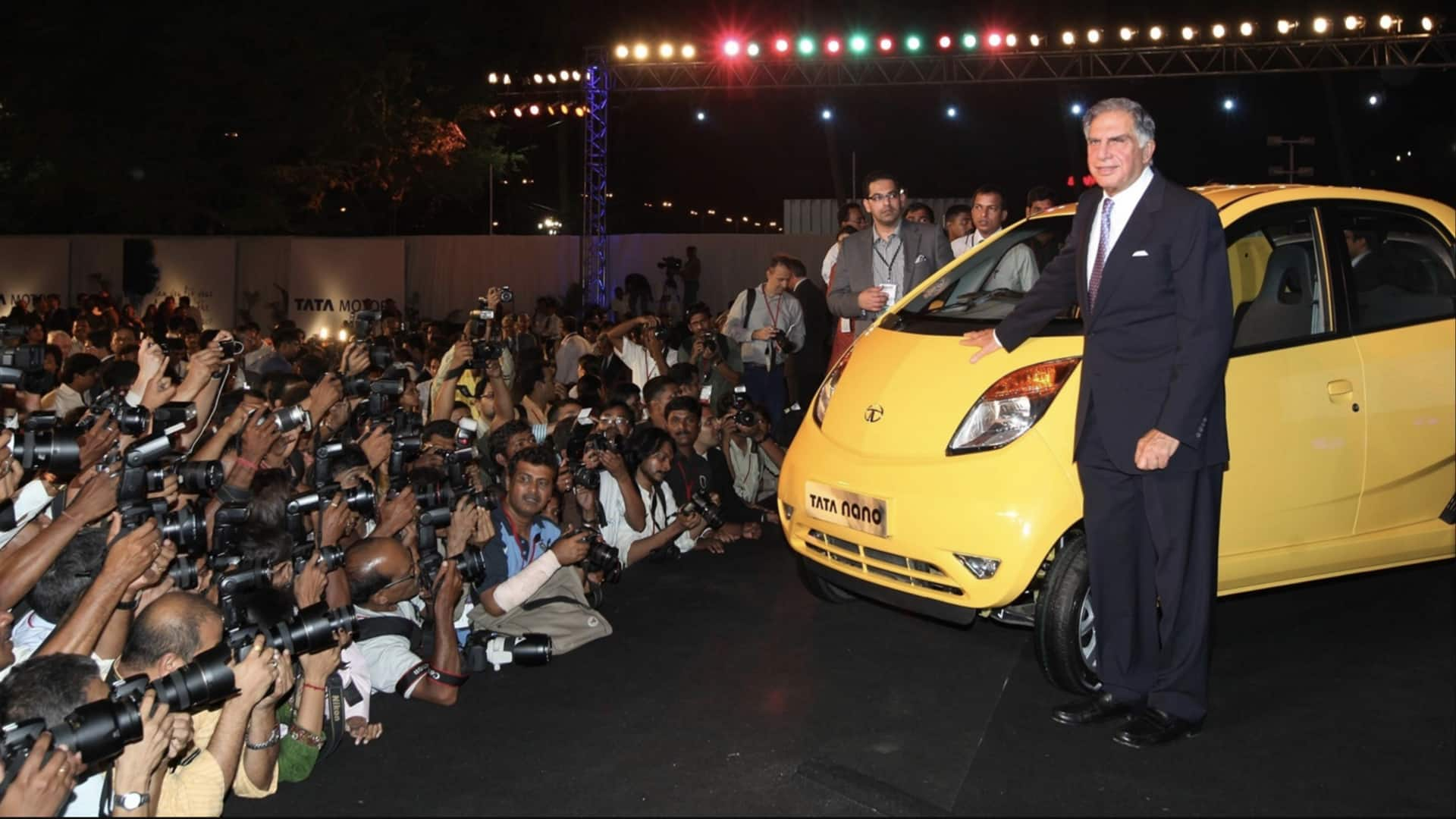
From Nano to JLR: Ratan Tata's legacy at Tata Motors
What's the story
Ratan Tata, who passed away on Wednesday, has made an enduring impact on the Indian automotive industry.
His leadership at Tata Motors, spanning several decades, saw a series of bold moves that transformed the company from a domestic player into a global force.
From realizing the dream of building a people's car to acquiring global brands like Jaguar and Land Rover and pioneering the electric vehicle era in India, Tata's legacy is undeniable.
Inspiration
Nano's inspiration and initial hurdles
One of Tata's most ambitious visions materialized in 2008 with the launch of the Nano. This revolutionary car, dubbed the "people's car," aimed to provide a safe and affordable transportation option for the masses.
Priced at a revolutionary ₹1 lakh (approximately $2,500 at the time), the Nano shattered the idea of car ownership being a luxury.
While the initial marketing strategy faced some challenges, the Nano remains a significant milestone in Tata Motors's history, showcasing its commitment to social innovation.
Market performance
Nano's image and market performance
The Nano's market performance was disappointing, with Tata admitting in 2013 that its image as a "poor man's car" had acted as a stigma.
This perception issue was one of the key reasons behind the gradual phasing out of the Nano from the market.
Nevertheless, Tata Motors continued to innovate and expand its product range in the automotive industry.
Acquisition
Tata Motors's acquisition of Jaguar Land Rover
Another defining moment came in 2008, the same year as the Nano launch.
Tata Motors, under Tata's leadership, made a bold move by acquiring Jaguar Land Rover from Ford for $2.3 billion.
This strategic acquisition not only diversified Tata Motors's portfolio but also propelled the company into the luxury car segment and the global automotive landscape.
The success of JLR's revival under Tata's leadership solidified the company's position as a global player.
Turnaround
JLR's turnaround and Tata Motors's EV leadership
The global financial crisis of 2008 hit JLR's sales hard and resulted in a net loss of £281 million between June 2008 and March 2009.
By 2010-11, JLR had made an incredible turnaround with global sales bouncing back to 2.4 lakh units and pre-tax profits skyrocketing to £1.1 billion.
In FY 2023-24, JLR sold over 4.3 lakh units, raking in a record £29 billion in revenue, up 27% YoY with a net profit of £2.6 billion.
EV foray
Tata Motors's foray into EV segment
Recognizing the growing importance of sustainability, Tata Motors, under Tata's leadership, invested in electric vehicle (EV) technology.
To address declining car demand, the company launched the "Turnaround 2.0" strategy in 2019-20, focusing on operational efficiency and EV development.
Since then, Tata Motors has launched successful electric car models, showcasing its commitment to cleaner transportation.
With a 73% market share in India's EV market and over 150,000 EVs sold last year, Tata Motors has become a leading player in this sector.